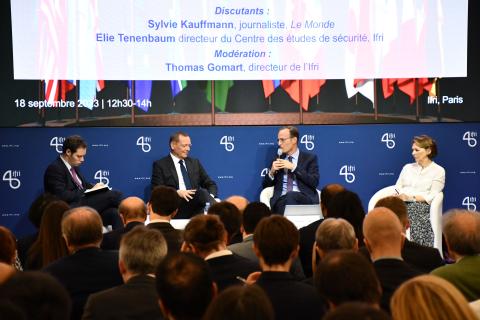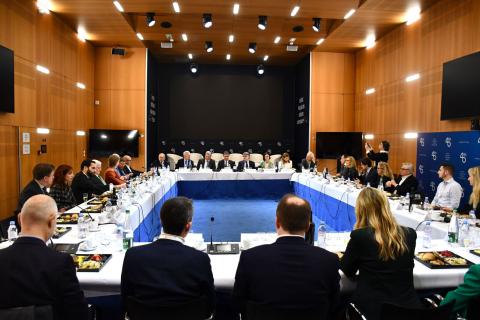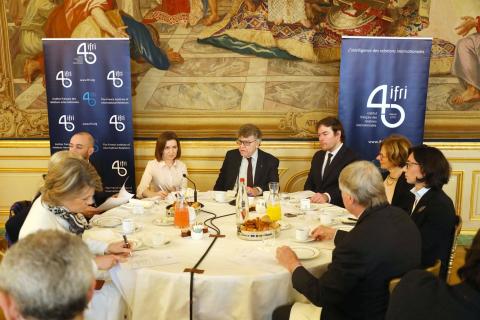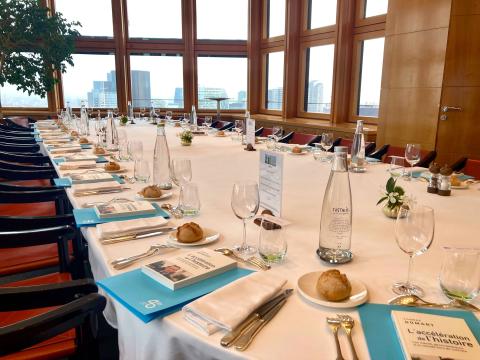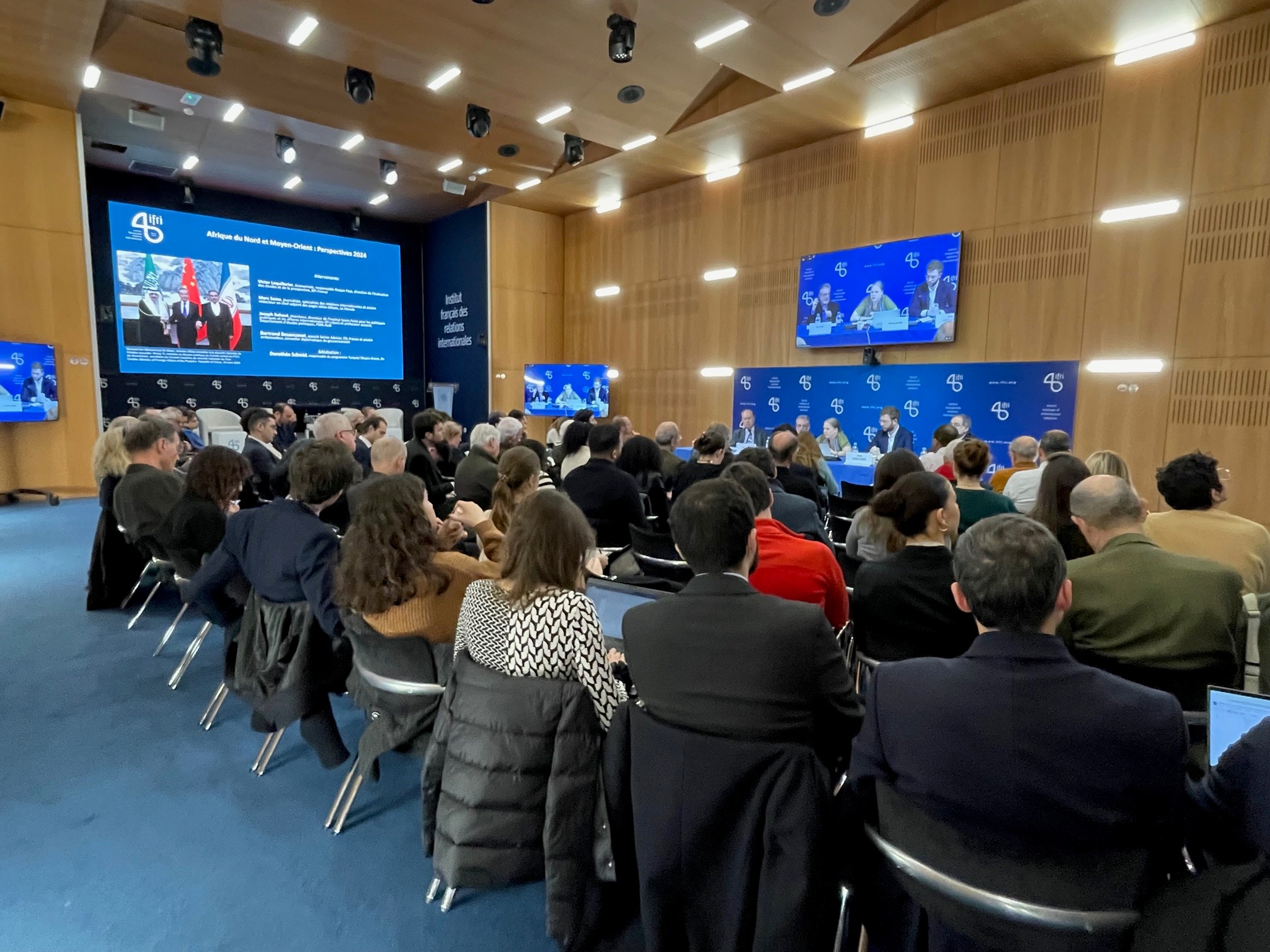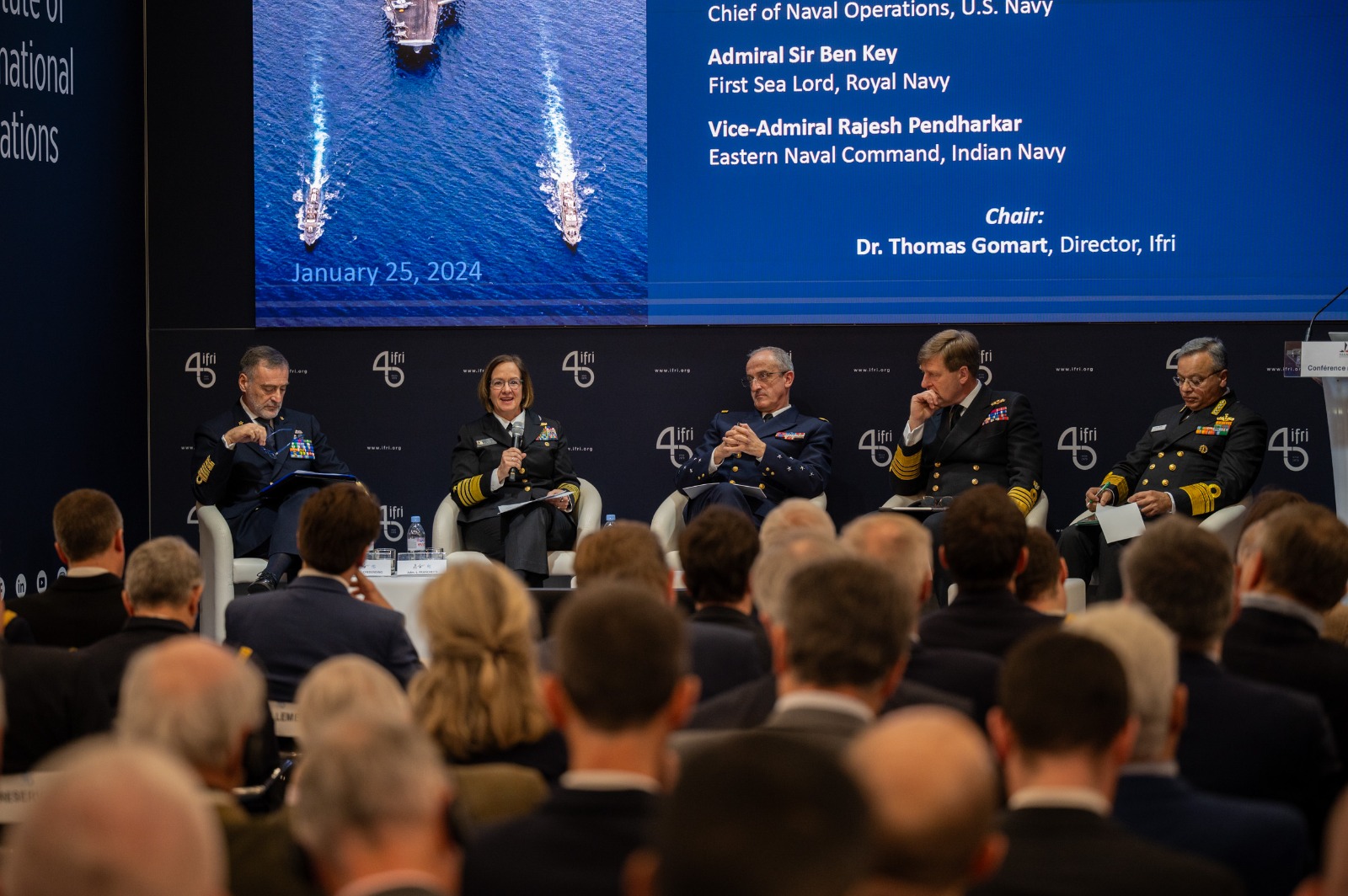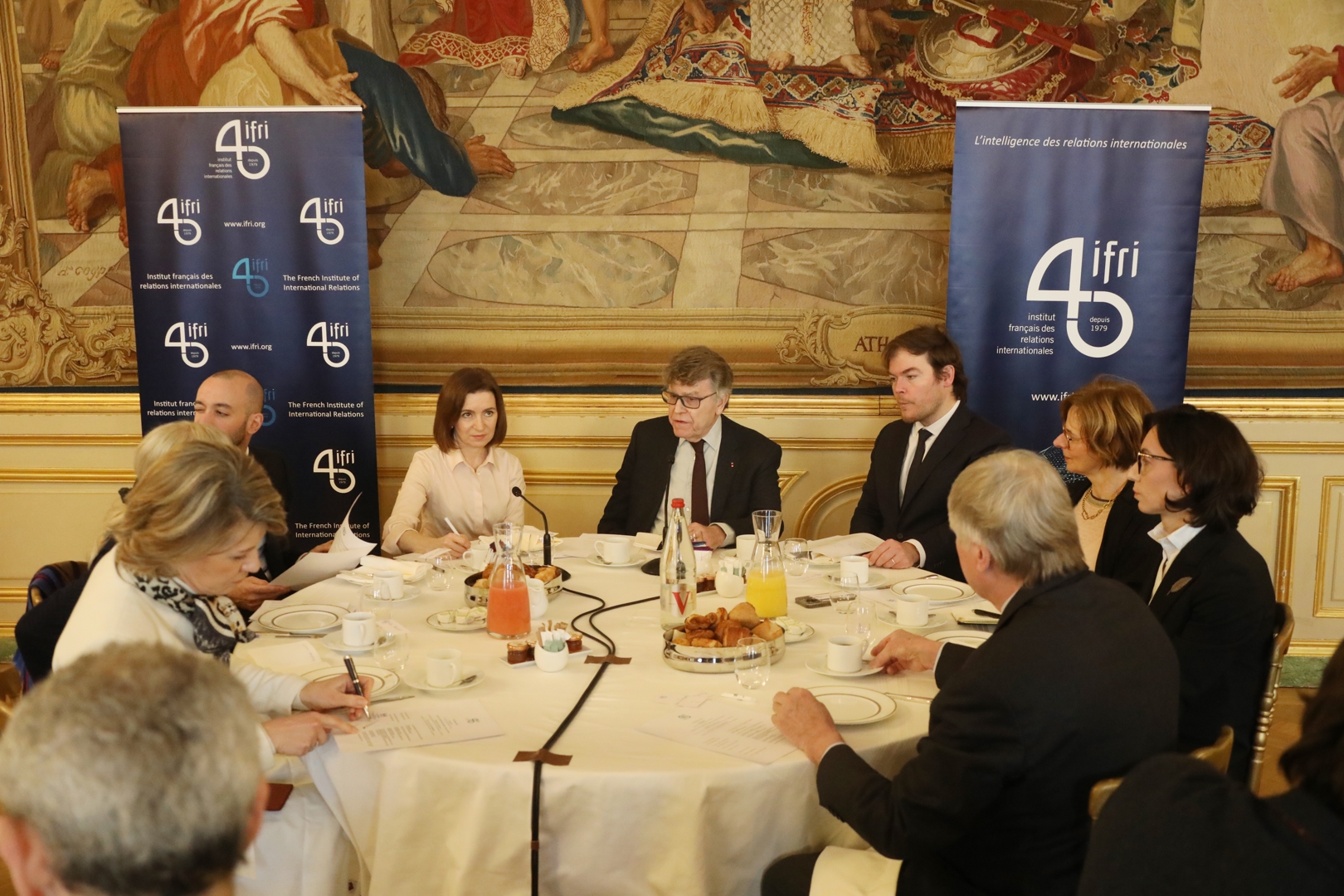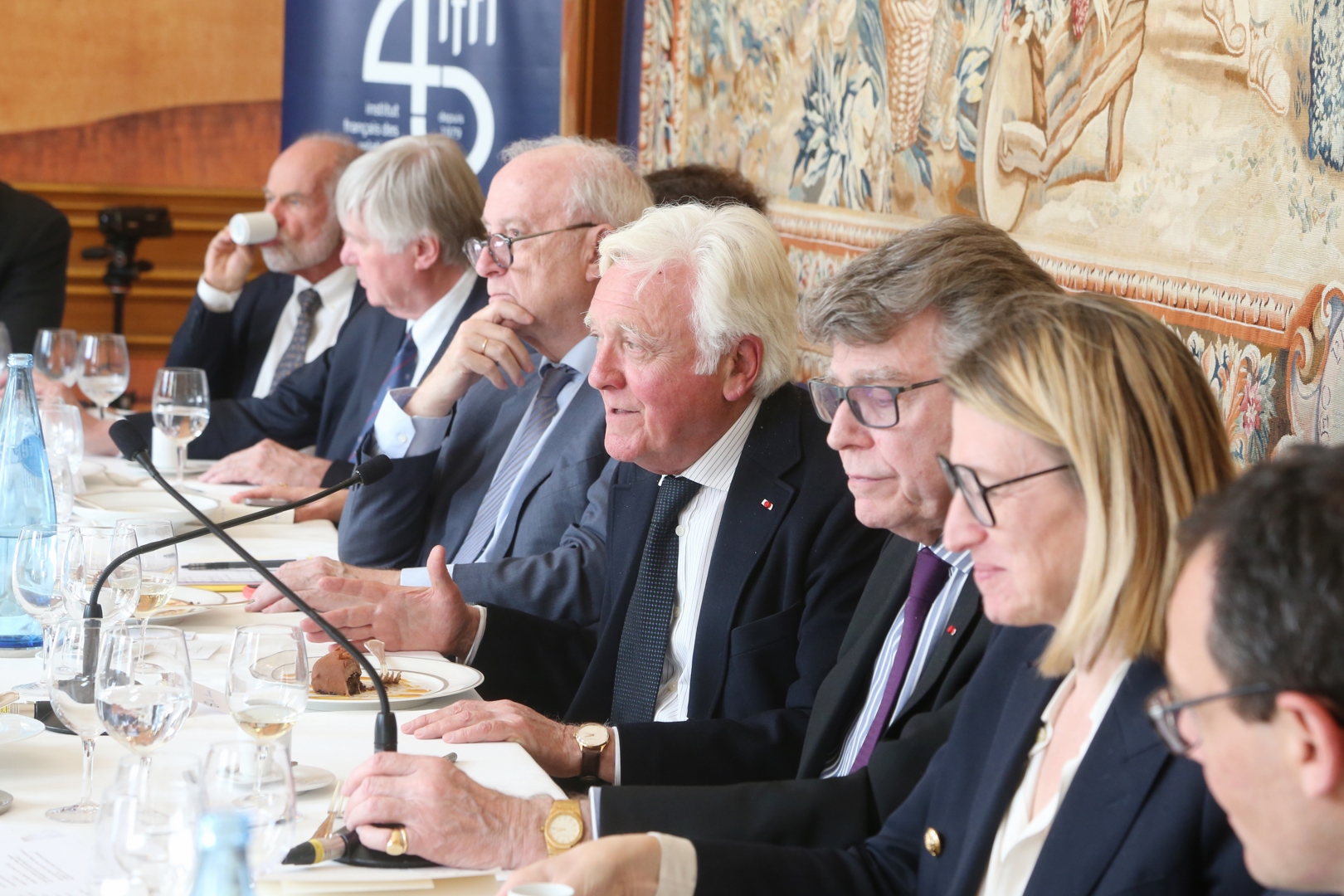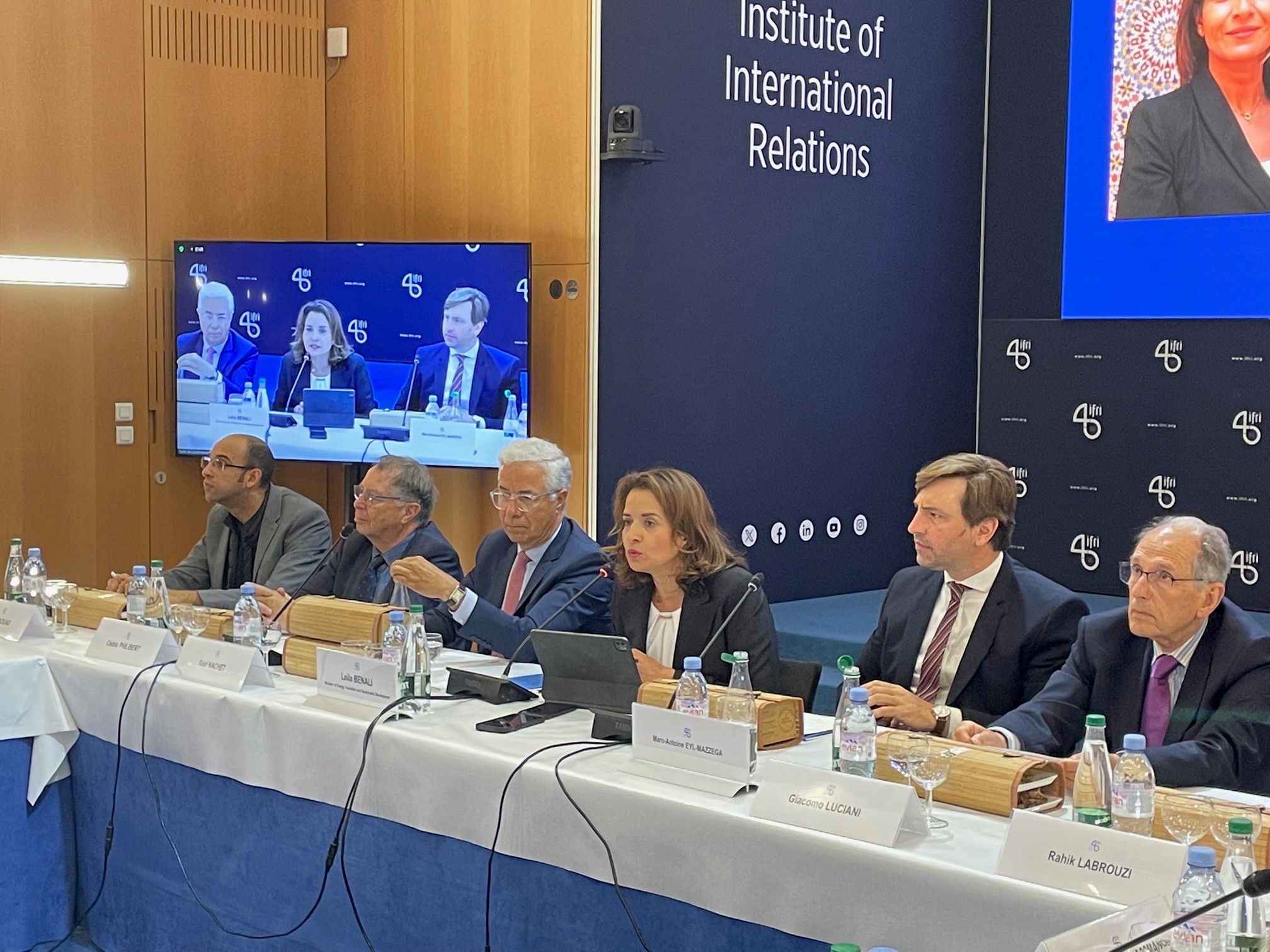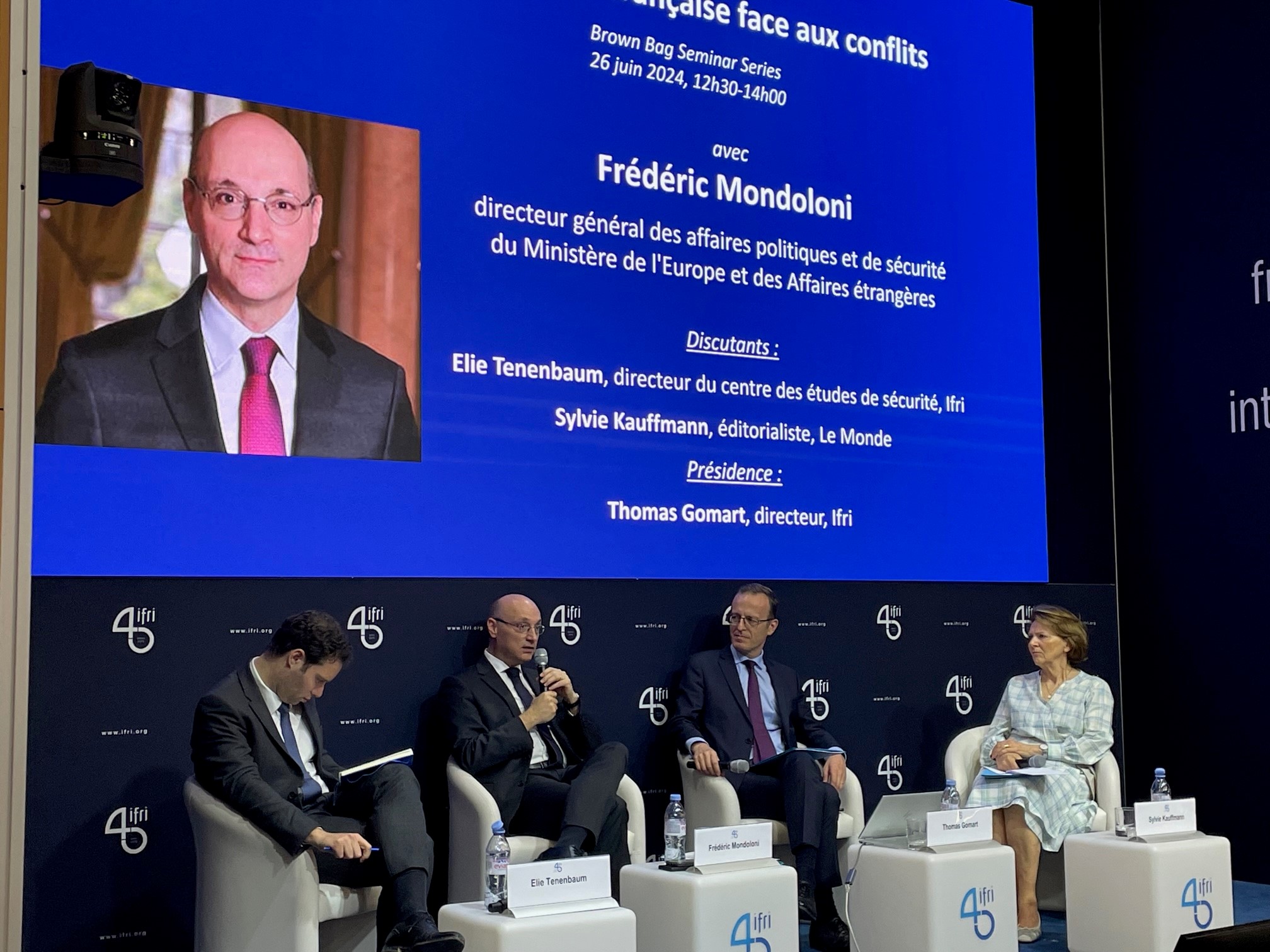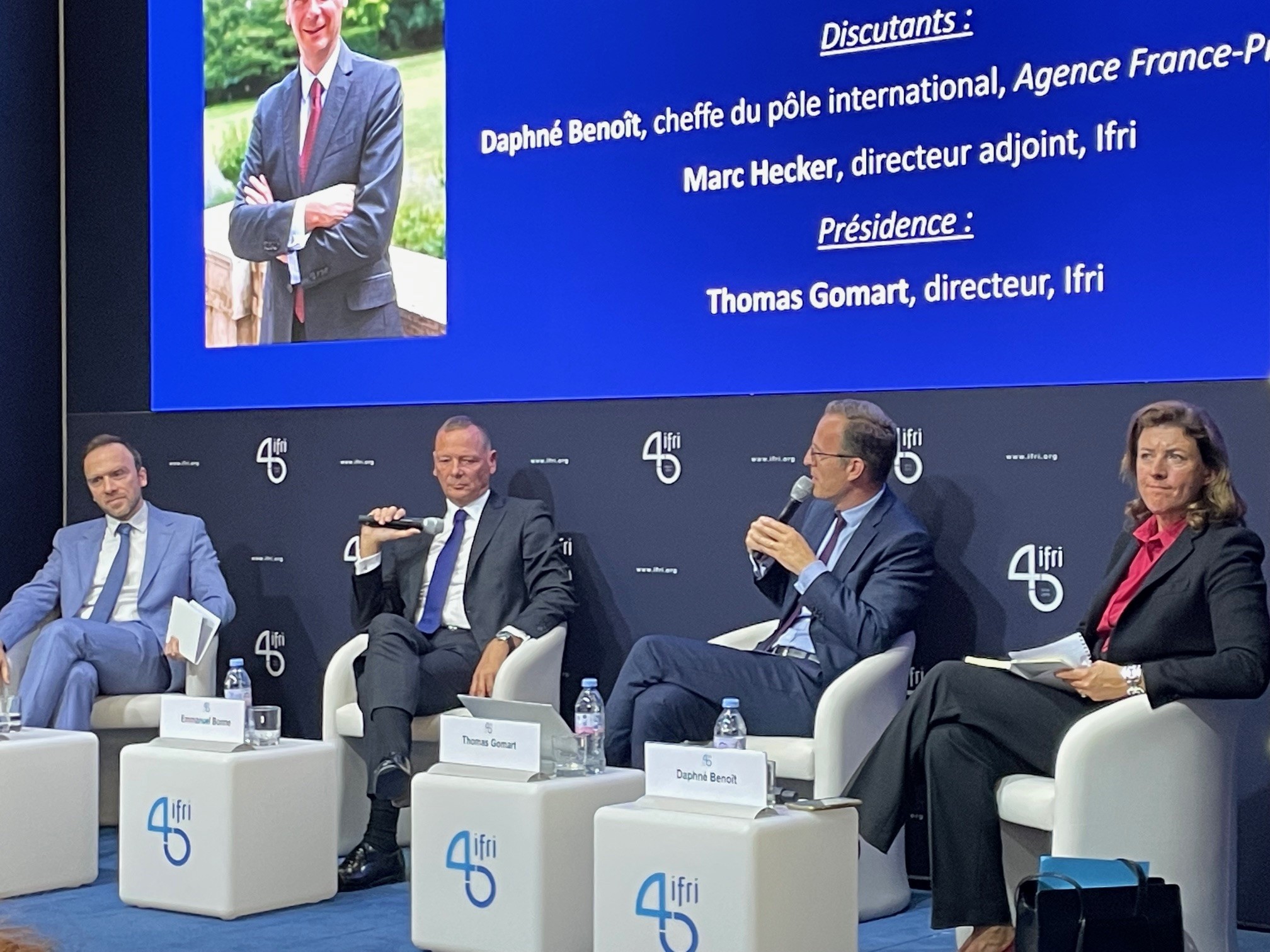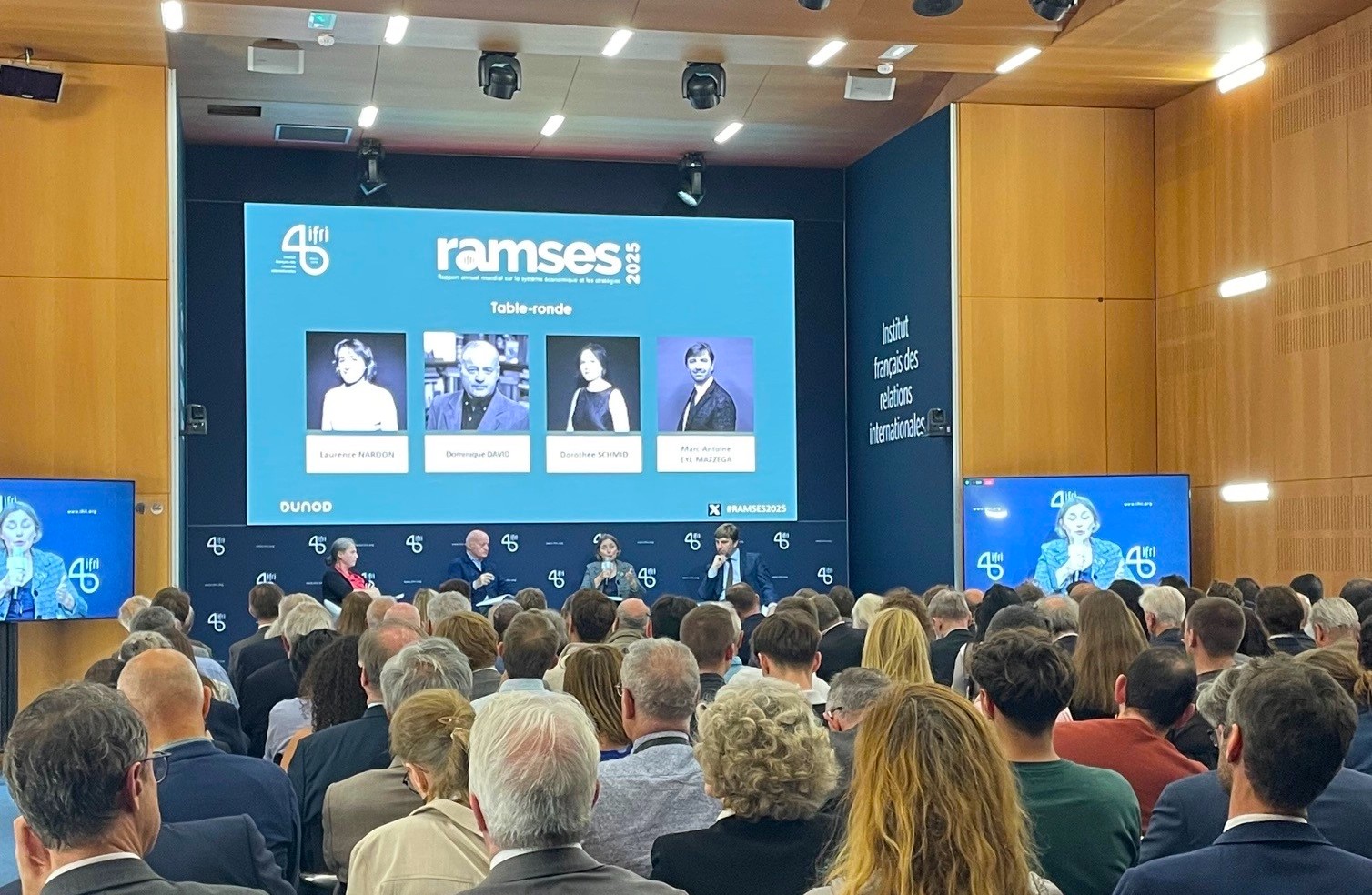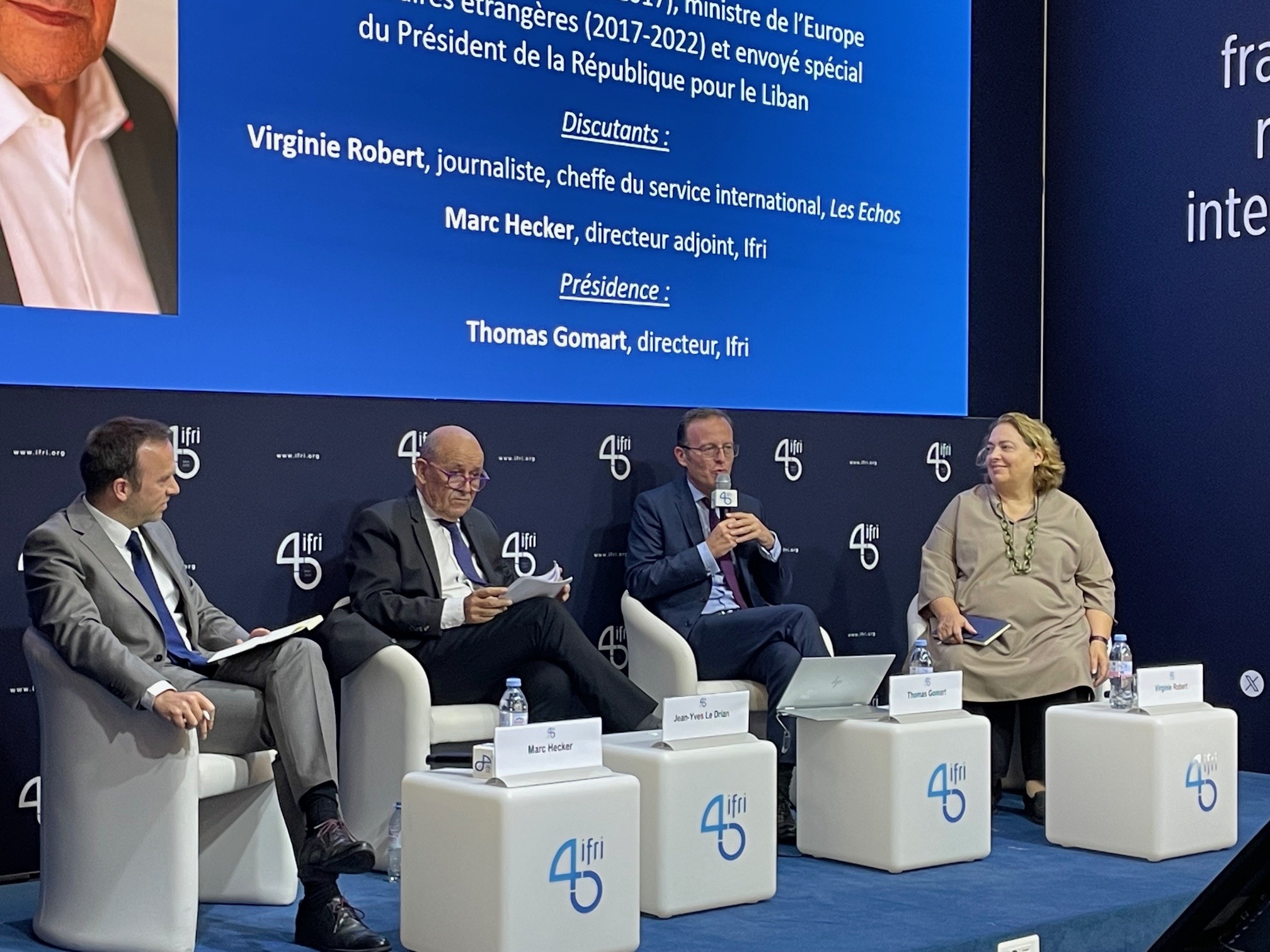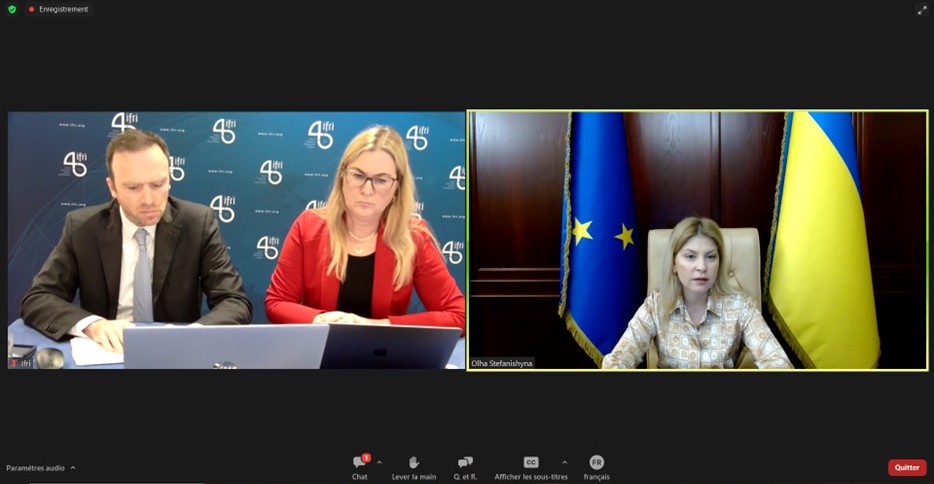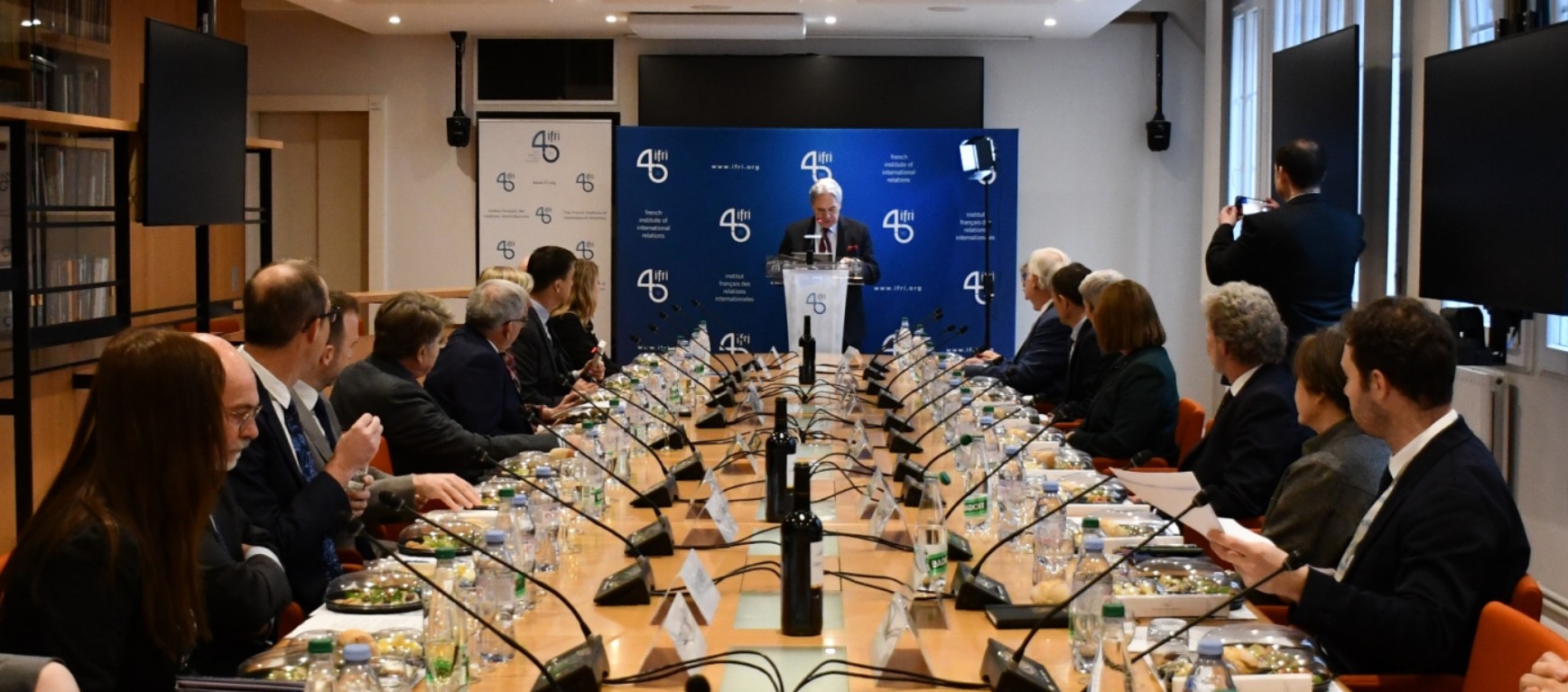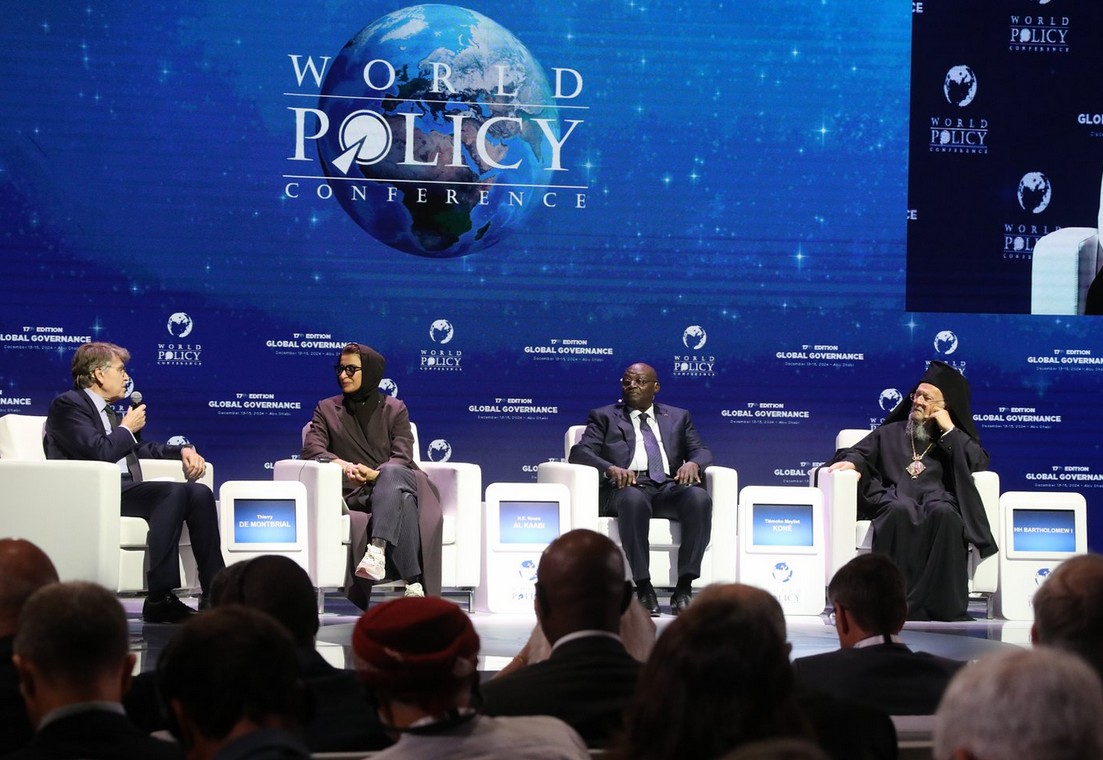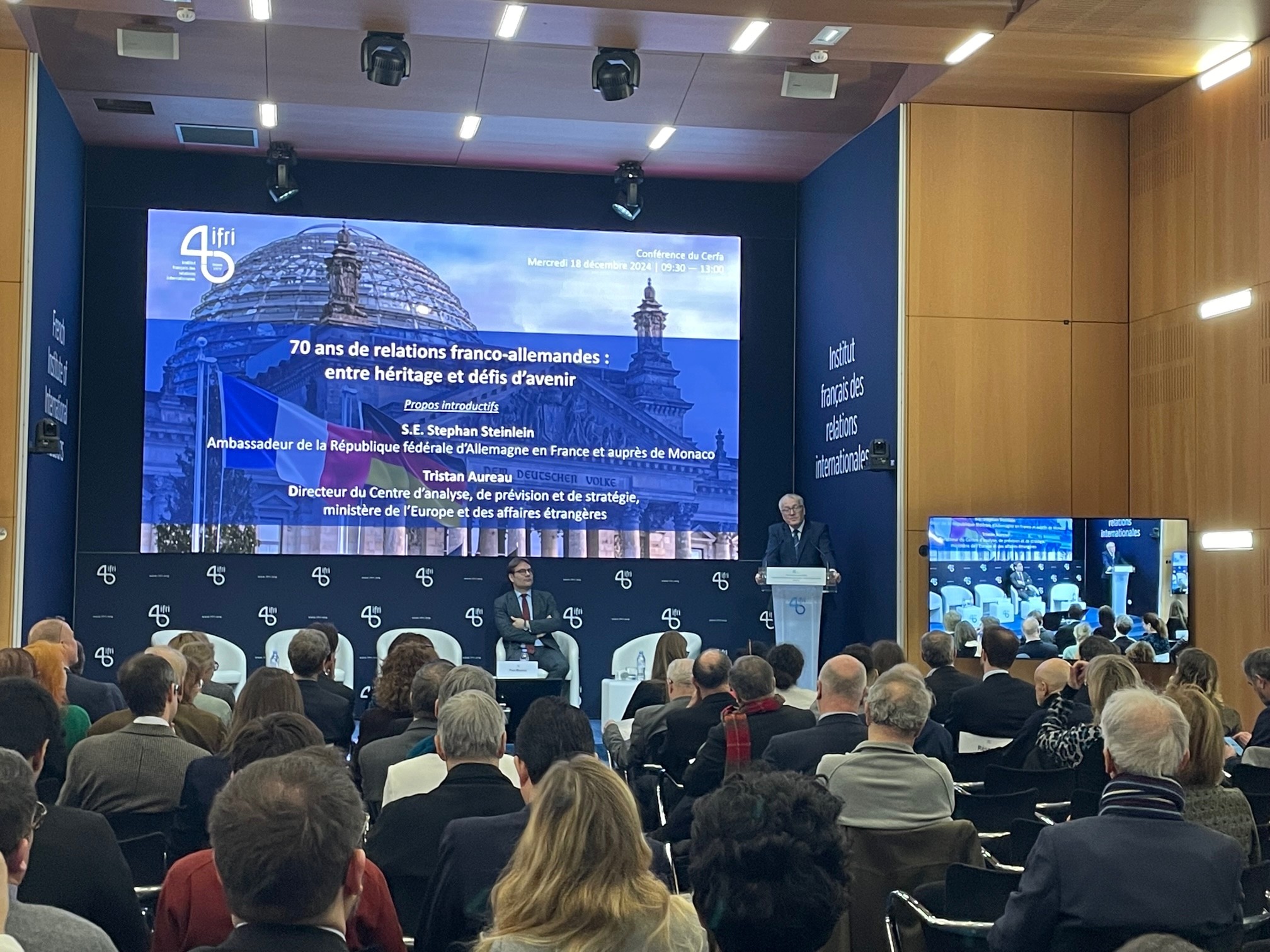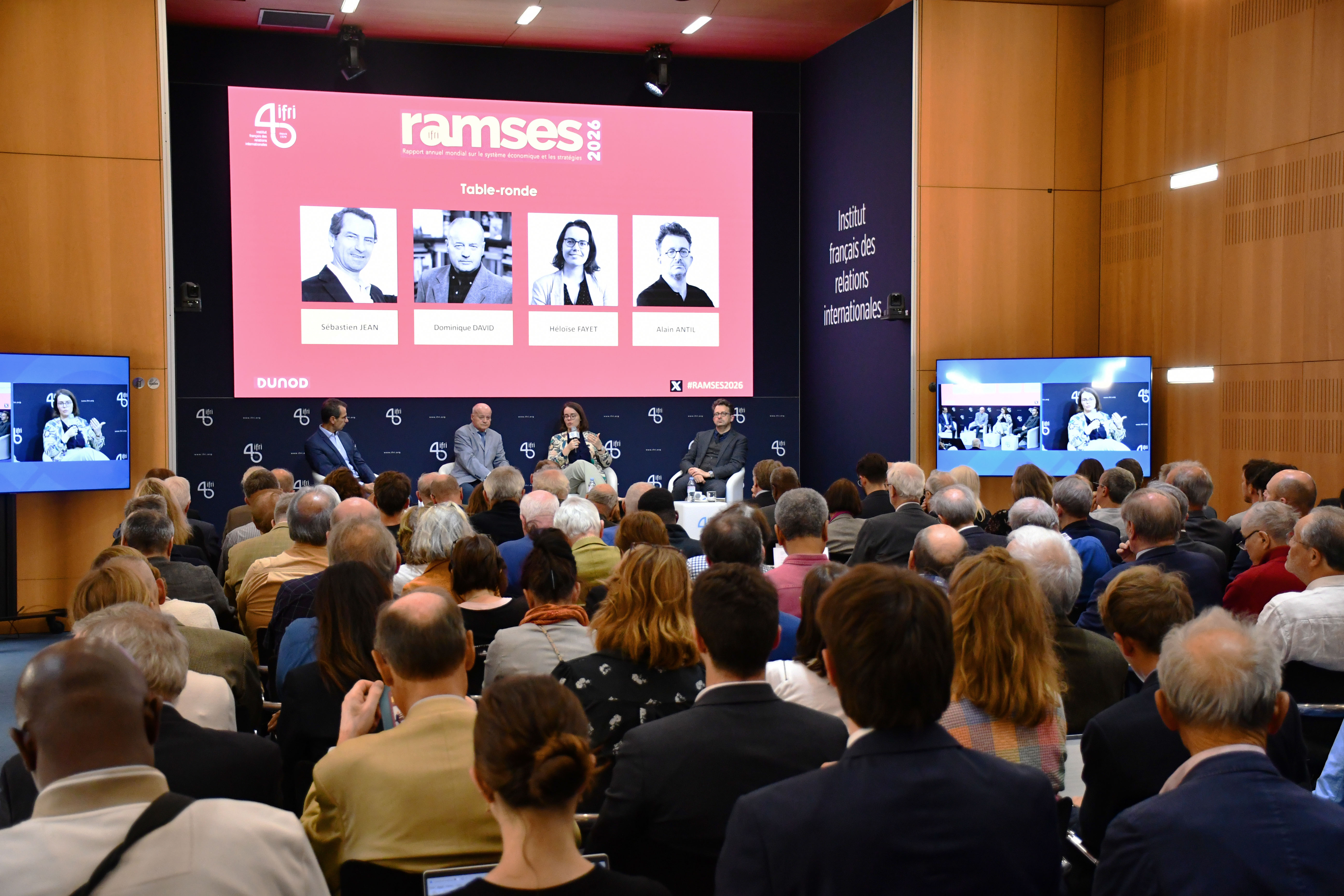
Titre
Events
Filter results
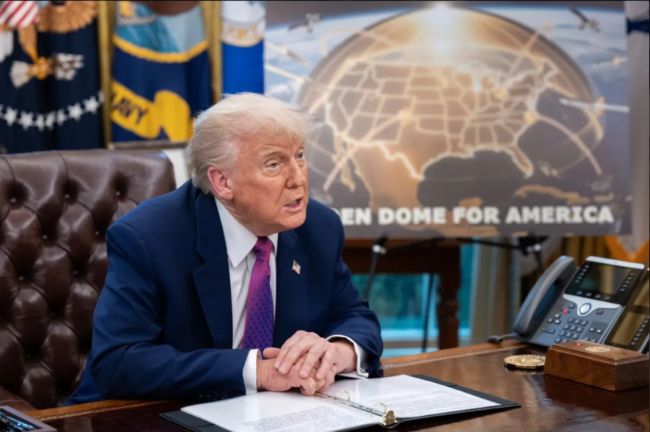
The Evolution of the U.S. Strategic Posture under Trump's Second Term
The United States’ strategic posture is currently marked by significant uncertainty and contradictory signals.
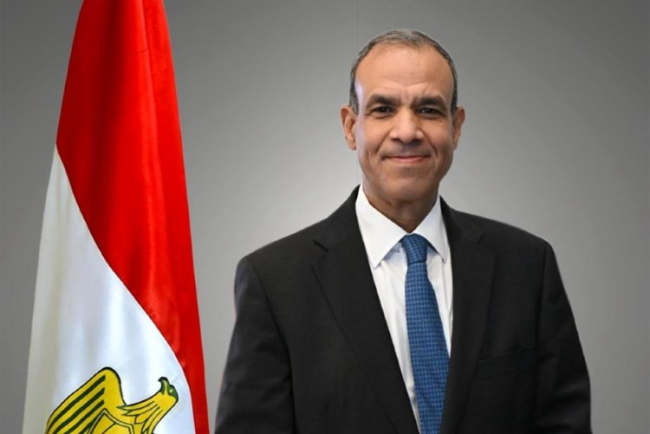
Conference with Badr Abdelatty, Minister of Foreign Affairs of Egypt
Egypt, with a population of over 115 million, is a key state in the Arab world. Its geographical position places it at the heart of regional tensions, which have been particularly heightened since October 7, 2023. Sharing a border with the Gaza Strip, it has been involved in providing humanitarian aid and in negotiating a ceasefire.
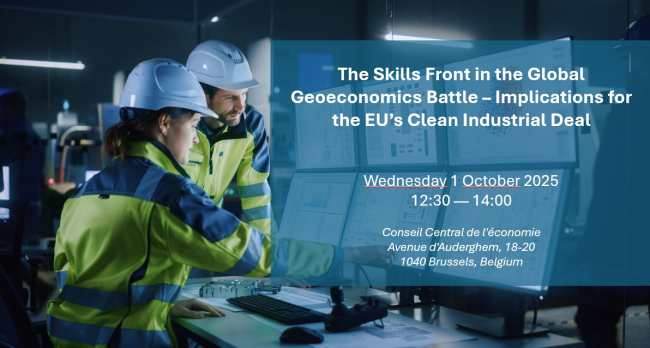
The Skills Front in the Global Geoeconomics Battle – Implications for the EU’s Clean Industrial Deal
In the global race for mastering and deploying clean energy technologies, the available and well-trained workforce is a crucial success factor, with China already a green skills superpower: 90% of its energy jobs growth are in the clean energy sector and the country accounts for about 80% of global employment in the batteries sector.
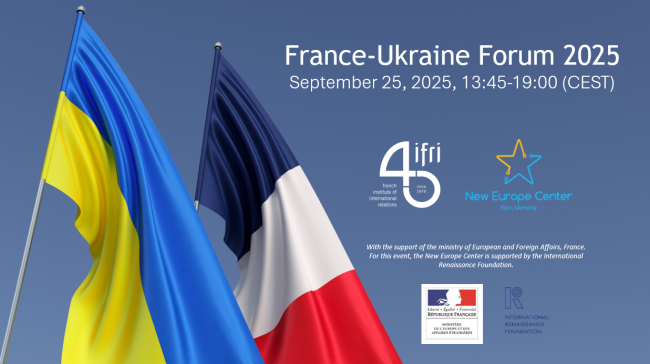
France-Ukraine Forum 2025
Three years after the start of Russia's full-scale war against Ukraine, the France-Ukraine 2025 Forum will welcome politicians, experts, academics, and civil society representatives from both countries to discuss three main topics: Ukraine's current military strategy and strategic perspectives; the country's resilience and recovery; Ukraine's European and transatlantic perspectives, including the EU accession process and its aspirations to join NATO.

Cracking the dilemma of international carbon credits in the EU 2040 target: can EU’s climate action turn geopolitical without losing domestic integrity?
With COP30 just around the corner, and as the EU is debating its 2035 NDC and 2040 targets, EU faces a key strategic dilemma of whether international carbon credits should be included in its 2040 emissions reduction target and if so, under which conditions?
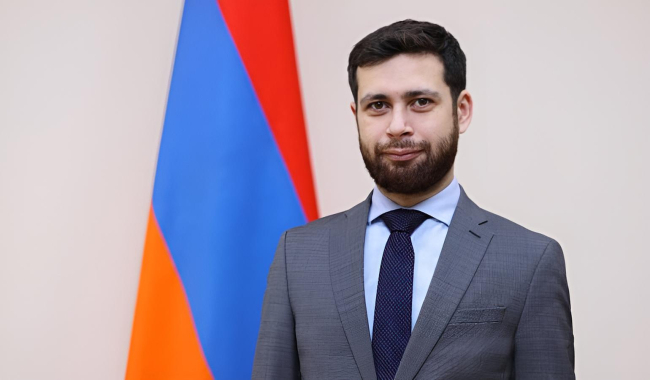
Armenia at the Heart of the Changing Regional and Global Geopolitical Context
At the crossroads of regional dynamics in the South Caucasus and global geopolitical tensions, Armenia faces a necessary strategic repositioning.
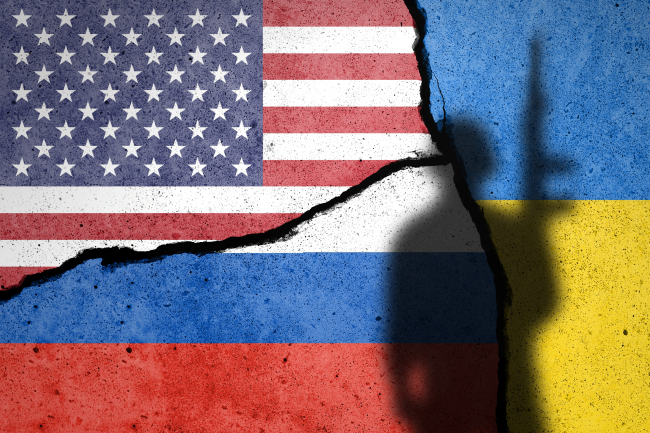
War in Ukraine, continuation or end?
After more than three years, the war in Ukraine knows neither victor nor vanquished. However, the balance of power is gradually being reversed in the triple context of Russia’s resilience, Donald Trump’s arrival in the White House, and the consequent weakening of transatlantic ties.
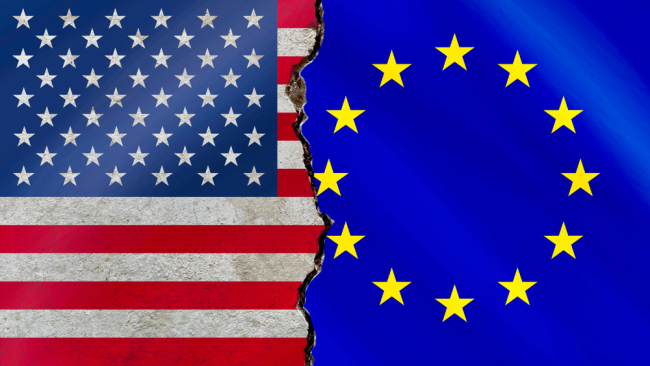
Europe in turbulence: navigating a new world order without the United States?
The foundations of the post-1945 international order, long anchored by U.S. leadership, are shifting. Amid intensifying geopolitical rivalry, democratic backsliding, and strategic fatigue in Washington, the question arises: what if the United States no longer plays its pivotal role in international security? Simultaneously, the Global South is asserting new political and economic agency, complicating the old binaries of West vs. Rest. For Europe, this landscape is both a challenge and an inflection point.
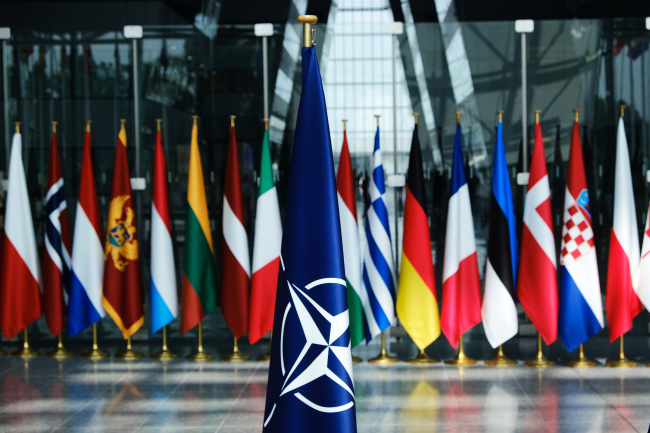
Assessing the Balance of Power between Europe and Russia
The evolving U.S. strategic posture and the intensification of the war in Ukraine are reshaping the security landscape in Europe. This context calls for a clear assessment of the balance of power between Europe and Russia.
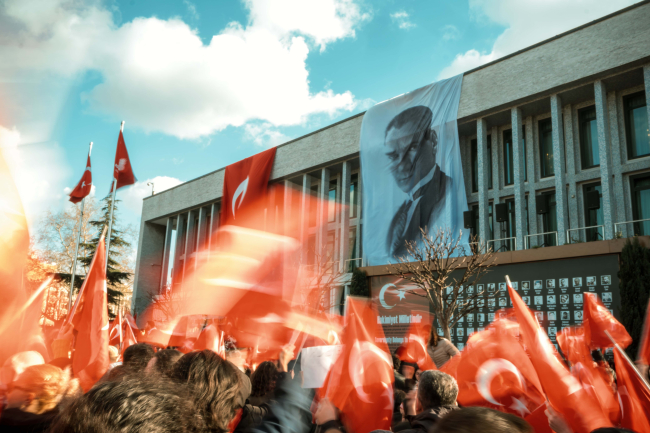
The Resurgence of Risk in Turkey
Turkey has entered a new phase of turbulence. The arrest of Istanbul’s mayor, Ekrem İmamoğlu, on March 19, 2025, triggered a broad protest movement, which the main opposition party, the CHP, is attempting to organize. In parallel, the government continues its peace process with the PKK — a development that could profoundly reshape the country’s political landscape.
Event Series
Latest retrospectives
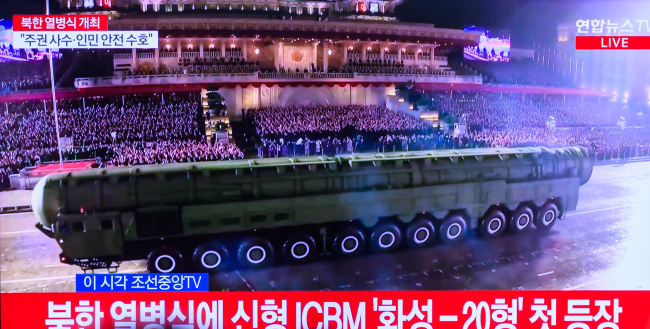
The New Nuclear Instabilities on the Korean Peninsula
From the growing size and diversification of the North Korean nuclear arsenal, and an open rhetoric in favor of nuclear proliferation in the South because of the loss of credibility of U.S. extended deterrence, the Peninsula is facing raising nuclear tensions.
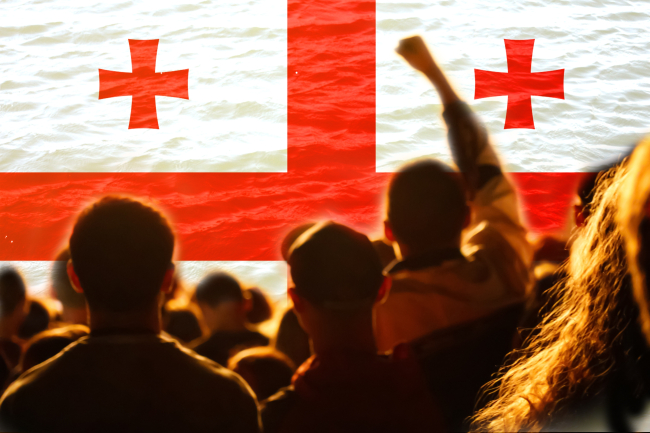
Georgia's Authoritarian Turn and Its Foreign Policy Implications
The Georgian state is currently undergoing a critical phase of democratic decline, marked by the domination of the Georgian Dream party and an authoritarian drift that is disrupting its political institutions.
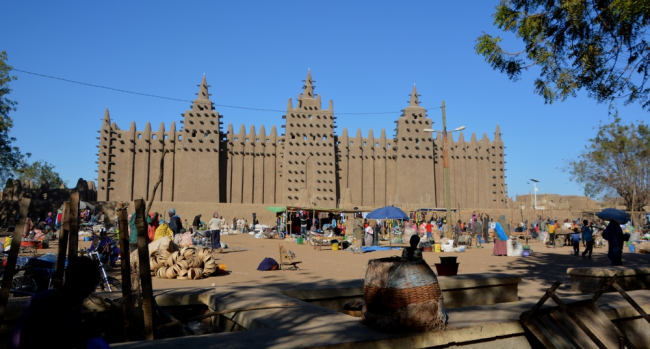
German and French Africa Policies in a Multipolar World
The world order is undergoing a profound and accelerating reconfiguration. In this multipolar context, actors such as China, Turkey, Russia, India, and Gulf region countries like the United Arab Emirates or Saudi Arabia, are increasingly asserting themselves as essential strategic partners for the continent. Simultaneously, European states are also seeking to redefine their roles on the continent.
Titre événement en image
Ifri in Pictures
Support independent French research
Ifri, a foundation recognized as being of public utility, relies largely on private donors – companies and individuals – to guarantee its sustainability and intellectual independence. Through their funding, donors help maintain the Institute's position among the world's leading think tanks. By benefiting from an internationally recognized network and expertise, donors refine their understanding of geopolitical risk and its consequences on global politics and the economy. In 2025, Ifri supports more than 80 French and foreign companies and organizations.









